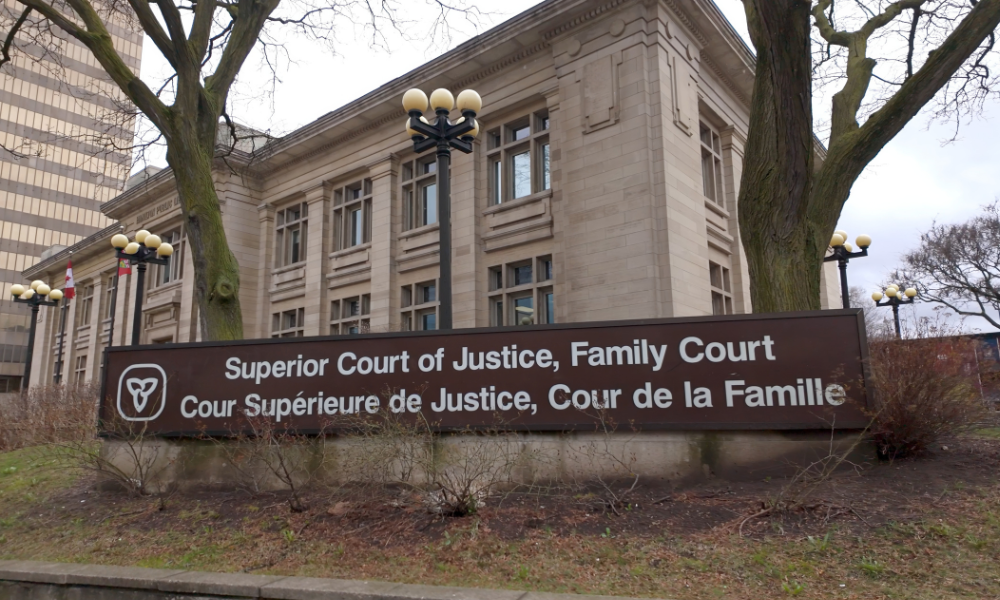
Testator's ex-counsel renounced their roles as executors and estate trustees named in will

The Ontario Superior Court of Justice has denied the request of a testator’s former lawyers to dismiss an application upon finding that the factual circumstances required it to exercise its broad and inherent inquisitive jurisdiction to supervise the estate’s management.
In the Estate of McGarry, deceased, 2025 ONSC 3299, the testator had three children, including the applicant daughter. The testator married the applicant’s mother in 2000 and separated from her in 2014, but never legally divorced her.
The testator allegedly suffered from cognitive difficulties since 2012 and was involved in litigation that addressed his mental capacity. In March 2014, his former lawyers at Brazeau Seller LLP referred him to a neuropsychological assessment, which found symptoms of cognitive decline consistent with Alzheimer’s disease.
Three days after the assessment, the testator allegedly ended his retainer with Brazeau Seller and hired Daniel Nassrallah, Georges Nassrallah, and Nasrallah Law Offices P.C.
In September 2015, after their solicitor-client relationship soured, Nasrallah Law Offices P.C. brought a claim alleging that the testator breached their contract and failed to pay for legal services amounting to $125,042.60.
The testator initially defended himself against the proceedings with the help of his new counsel. However, as a self-represented litigant on Oct. 23, 2015, he amended his statement of defence to admit to every allegation included in the statement of claim.
On Oct. 25, 2016, the testator executed a purported last will and testament, which named Daniel and Georges Nassrallah as sole executors and estate trustees.
Three days later, the testator altered his irrevocable life insurance policy worth $1 million, which previously designated his estate as the only beneficiary. He set the following apportionment for the new beneficiaries: 10 percent to the applicant and 45 percent each to Daniel and Georges Nassrallah, both of whom he described as “Lawyer/Friend.”
After her father passed away on Jan. 27, 2024, the applicant learned that he had executed two previous wills dated Jan. 21, 2011 and May 14, 2012. In June 2024, Daniel and Georges Nassrallah renounced their roles as executors and estate trustees.
Last January, the applicant initiated proceedings against the Nasrallahs in connection with the 2016 will and the life insurance policy. Her mother and two half-siblings, listed as potential beneficiaries in at least one of the wills, supported her application.
The applicant requested an appointment as the estate trustee during litigation (ETDL) and alternatively proposed the appointments of Ian Warren and Dahlia Aeta of Warren Camacho LLP as the ETDLs.
The applicant also sought the authority to investigate issues such as the 2016 will’s validity and directions relating to the determination of potential issues concerning the will and the irrevocable life insurance beneficiary designations.
The Nassrallahs, who were non-parties in this case, asked the court to dismiss the application. They claimed various procedural irregularities and mistakes but refused to provide evidence based on solicitor-client privilege.
The Ontario Superior Court denied the Nassrallahs’ request to dismiss the application. The court went over the reasons for this outcome. First, the court found the facts of this case highly suspicious.
Second, the court ruled that the applicant reasonably requested directions relating to the 2016 will and the beneficiary designations before her potential appointment as the permanent estate trustee.
Third, the court noted that the application arose due to steps that the Nassrallahs had taken. The court explained that the applicant could have filed a notice of objection, and the will challenge could have proceeded regularly, if the Nassrallahs had not renounced their roles and exposed the will to probate.
Fourth, the court found it had the discretion to order a probate of the 2016 will, given the suspicious transactions surrounding the instrument and the adjustment to the beneficiary designations.
Fifth, the court did not consider it premature to appoint an ETDL without an existing estate trustee. The court noted that an ETDL would administer the estate during the action’s pendency.
Sixth, given the suspicious circumstances, the court understood why the applicant preferred not to put the 2016 will up for probate. According to the court, these circumstances included the testator’s deteriorating health and capacity, his strained relationship with the Nassrallahs, the will’s execution, and the beneficiary designations.
Seventh, the court held that the Nassrallahs failed to cite any persuasive basis for their request to dismiss the application.
On the issue of the ETDL appointees, the court said the Warren Camacho lawyers suggested by the applicant should serve in the role to promote procedural fairness for all interested individuals. The court deemed them suitable and appropriate as they had the experience needed for ETDLs.
Lastly, the court approved the draft order for directions, subject to specific changes. The court amended the draft to reflect the appointment of the ETDLs and directed the negotiation and finalization of the order’s terms for producing legal files.